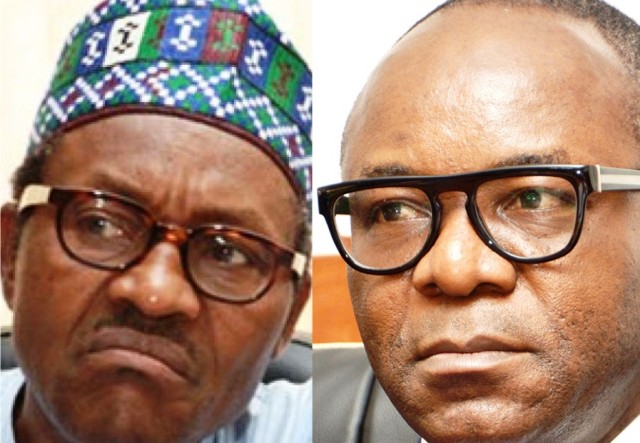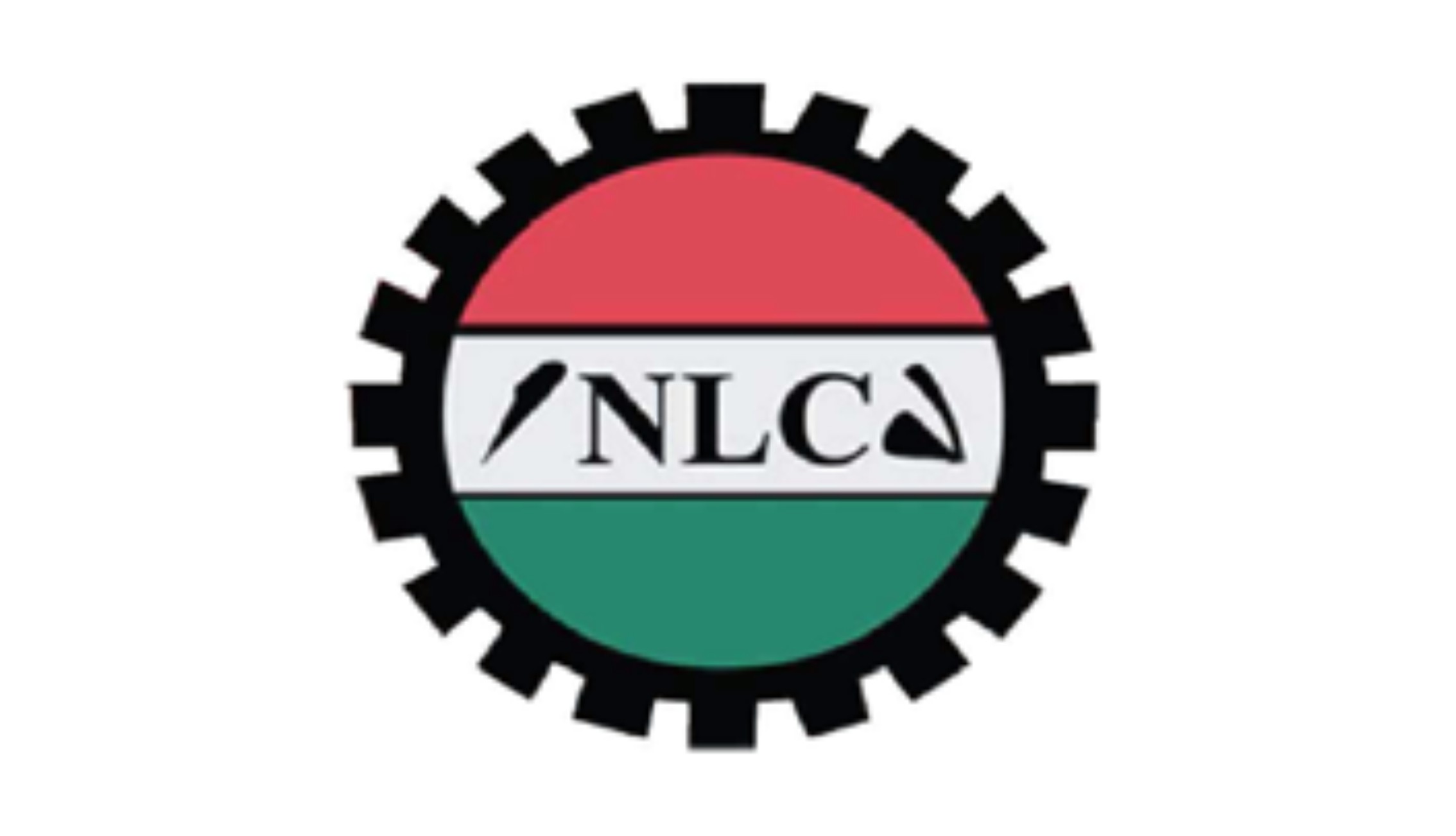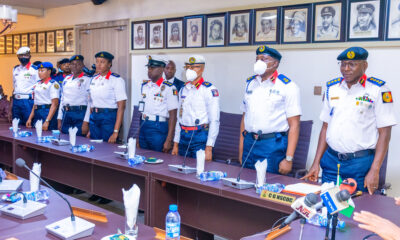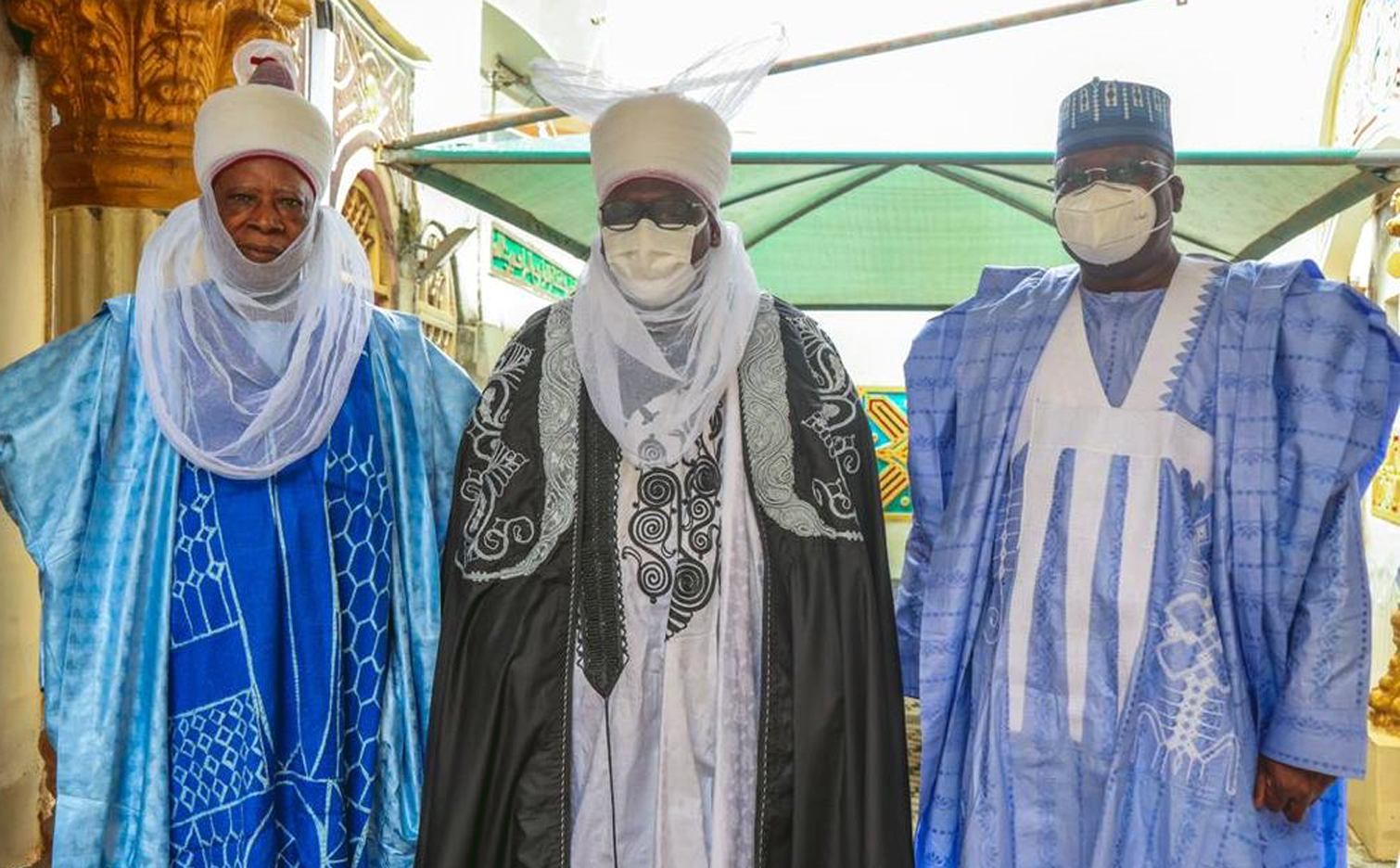Featured
Politics Of Oil, Solid Minerals …A Case Of Numbers Being Strength

The agitation for economic integration, political relevance and environmental protection by individuals and interest groups within the Niger Delta did not start today. Before it snow-balled into full-blown insurgency, well-meaning elite and indeed political and environmental activists had at various times made the case for the respect of the universal law on land ownership and why Nigeria’s Land Use Decree was an enactment of oppression.
Men like Chief (Senator) Melford Okilo, Chief Harold Dappa Biriye and Ken Saro Wiwa among others of blessed memory were civil in their agitations, arguments that drew global support for their noble cause. They insisted that the act of denying land owners proceeds of their inheritance was barbaric, suffocating, marginalizing and indeed oppressing.
Even with facts of history on the issue of derivation, the level of environmental hazards occasioned by oil prospection and production, the pollution of the people’s rivers and swamps, the threat to their major occupations, fishing and farming and above all, the discrimination against the youth of the affected areas, the political class weighed heavily in favour of the majority tribes dismissed the people’s agitation with a wave of the hand.
So frustrating, even the issue of derivation was also politicised. Infact, it was a case of persistent civil protest from one government to another, both civilian and military. At some point under the Buhari military leadership, derivation was as low as 1.5 percent, even with all the environmental degradation suffered by the people.
What was most annoying was that the people of the rural areas, where, oil was daily being drilled, saw electricity light in house-boats and estates of oil companies but used kerosene lamps.
The people saw oil company workers drinking bottled water and threw the wastes into their rivers, which also obstructed fishing, but drank from wells and sometimes stagnant water.
That two-class syndrome also ignited the vulnerability of the girl-child, who became play thing for highly paid oil workers. The freebies such vulnerable girls got from the predatory pastime of the red-eyed workers encouraged easily prostitution and sent many out of schools.
Employment of the males was also a pipe dream. Each oil company involved in the production of oil went to the rural communities with their own work force, and ensured sustenance of the status quo by manipulating posting of youth corps members from their own tribes who are eventually employed, instead of the qualified many within the community and state.
Even the Act providing low level jobs for locals was observed in the breach. With that, the frustrated youth thus became mere tools in the hands of oil workers, to whom they served as pimps, for cutting grass at the estates of the companies, sparingly as night guards and at other times for clearing of gutters.
Interestingly, because operational modus was signed directly with the Federal Government, the oil bearing communities, with all their environmental stakes were insulated from the operations or got peanuts. Like the proverbial man surrounded by water with none to drink, the Niger Delta youth saw unbridled affluence and financial rascality daily flaunted by oil workers to lure their sisters, aunts and even mothers out of matrimony, but could not touch.
That indeed further fuelled the violent agitation. With nothing to rely on for sustenance, since their rivers and seas were covered by oil wastes and sometimes leaks from their pipes with devastating effects on all sea creatures, sea foods like periwinkles, oysters, shrimps and mangrove crabs among others daily exterminated by pollutants and with no hope of change, what was once a civil debate, humble protest, mature agitation and simple appeal by the elite turned to violent threats, militancy and insurgency.
The major demand became Resource Control, and arrangement which would allow the people and governments of oil producing communities and states to control the resources from their God-given land, as obtains everywhere in the free world. The youth wanted true and practical federalism which would force states to pay taxes through the management of their own resources.
But for over 50 years, that simple request remains unanswered. Each time, their protestation turned to a violent kind, given that a hungry man is near-frequently an angry man, the oppressors would demonstrate their heavy handedness through the deployment of arms and ammunition to quell any insurrection while the central issue remained unsolved.
In all these years, the argument put forward by the political elite of the majority North and their South Western collaborators has been that oil is a gift from God and so belongs to all, therefore, primary owners of the land, being Nigerians, cannot lay claim of singular ownership to such resources. According to them, since the treasure remained buried beneath the land, within Nigerian geographical space, it belongs to all Nigerians, and so must be centrally manage, as if the Niger Delta became Nigeria by choice.
With that conclusion, proceeds from oil go faraway Abuja to sustain even states that contribute little or nothing, apart from being lucky to be under the protection of the majority.
That is also why the Petroleum Industry Bill (PIB) has not been passed for nearly six years. Part of the bill seeks to make paltry allowance for oil bearing communities, not just to give them a sense of belonging but also instill in them the need to protect oil company assets located in their arears, since they are direct beneficiaries.
That too appears to the strong majority opposition too much of a sacrifice, since oil is simply a gift from God. But to whom? The same God that gave the North more fertile land for agricultural and livestock activities and rivers and swamps to Rivers, Bayelsa, Delta, Akwa Ibom, Cross River, Delta, Edo, among others for fishing? With such rivers, seas and swamps polluted by production of a commodity that now belongs to all, would the North also willingly share proceeds of their agricultural earnings?
Each time these questions are raised, the answer has remained the same. Oil, being buried beneath the land within Nigeria’s territory, remains a gift from God. But in their comfort zone, they forget that those who make peaceful change impossible make violent change inevitable, as the sages say.
Could that have accounted for the large scale insurgency under the Yar’Adua Presidency and subsequent pronouncement of amnesty? Unfortunately, all other projects that went with the amnesty, especially the East West Road still remain uncompleted. Still too much infrastructural deficit. Still too much discrimination against qualified manpower of Niger Delta origin.
Bottomline, Niger Deltans cannot claim benefits from their own lands, because everything sourced therefrom is a gift from God, and belongs to all.
That is why it came to me as a rude shock last week, to read that the Adamawa State Government, in Northern Nigeria is to start exporting solid minerals including uranium, gold, lead, diamond and platinum, according to that state’s Commissioner for Solid Minerals, Shanti Shashi.
Infact, Commissioner Shashi said BTP, a Swiss company has signed a $56bn contract for solid minerals exploration in a very short while.
When did gold, lead, diamond, platinum and uranium become cash crops? What different law excludes these products, buried beneath the land as Gift from God? Or is it simply a green light for resource management and control?
It is most unlikely, because even as recent as last week, President Muhammadu Buhari alluded to the fact that with all the talk about diversification of the economy, oil production still remains the mainstay of the Nigerian economy, and so would do everything humanly possible to improve production and by extension, improved earnings.
My Agony is that it is very likely that the policy of resource control would come into effect, now through the back door, and later officially only when oil in the Niger Delta dries up completely. That will be when, Borno State begins oil production in large quantities.
Here, perhaps is a window for state governments in oil bearing Niger Delta to go into partnerships with willing foreign investors to start oil prospection and production before oil dries up.
Let’s not dismiss this merely as view thought out in recession, with a near empty stomach. It is a window shut for over 50 years of oil exploration.
Soye Wilson Jamabo
Featured
RSG Commits To Workers’ Welfare …. Calls For Sustained Govt, Labour Partnership

The Administrator of Rivers State, Retired Vice Admiral Ibok-Ete Ekwe Ibas, has assured the commitment of Rivers State government to workers’s welfare and industrial harmony in Rivers State.
The Sole Administrator gave the assurance after meeting with leadership of organized labour unions at the Government House, Port Harcourt on Wednesday.
Ibas reaffirmed government’s policy of prompt payment of salaries and pensions to workers and retirees, stating that all local government employees are not receiving the approved minimum wage.
He disclosed that approval has been given for payment of newly employed staff at Rivers State University Teaching Hospital and the Judiciary, while medical workers in Local Government Areas will now receive correct wages.
Ibas explained that, Government is reviewing implementation challenges of the Contributory Pension Scheme ahead of the July 2025 deadline, adding that Intervention buses have been reintroduced to ease workers’ transportation ,with plans to expand the fleet.
He said specialized leadership training for top civil servants will commence within two weeks, while due consideration is being given to implementing the N32,000 consequential adjustment for pensioners and clearing outstanding gratuities.
Ibas commended Rivers State workers for their dedication to service and called for sustained partnership with labour unions to maintain industrial peace.
“This administration recognizes workers as critical partners in development. We remain committed to addressing your legitimate concerns within available resources,” he stated.
The State NLC Chairman, Comrade Alex Agwanwor, thanked the Administrator for the steps taken so far with regard to workers welfare while appreciating his disposition towards alleviating the transportation problem faced by workers.
He also expressed appreciation for the government’s openness to dialogue and pledged continued cooperation towards achieving mutual goals.
The Rivers State Government assured all workers of its unwavering commitment to their welfare and called for continued dedication to service delivery for the collective progress of our dear State.
Featured
Labour Unions In Rivers Call For Improved Standard Living For Workers

The Nigeria Labour Congress (NLC), Rivers Council, has called for policies that will improve the economic situation of the country in order to ensure enhanced living standard for workers.
The State Chairman, Mr Alex Agwanwor, made the remark on behalf of the unions affiliated to Labour Congress during the 2025 workers day celebration in Port Harcourt, yesterday.
Agwanwor highlighted the demands of the Unions which included the immediate payment of pension arrears, implementation of the N32,000 minimum wage for pensioners, and payment of gratuities and death benefits without further delay.
“We are calling for the regulation and protection of e-hailing drivers, implementation of increments and promotions, and resolution of long-standing issues in the polytechnic sector,” he said.
Agwanwor on behalf of the unions appealed to President Bola Tinubu to reinstate the democratically elected Governor, Deputy Governor, and members of the Rivers State House of Assembly.
He stressed the importance of democratic governance and good working relationship with elected representatives.
According to him, the unions expressed disappointment over the imposition of taxes, increase in electricity tariff, and high cost of goods and services, which have further worsened the plight of workers.
“We urge the federal government to take measures to alleviate the suffering of citizens,” he said.
Featured
Tinubu committed to unlocking Nigeria’s potential – Shettima

Vice-President Kashim Shettima says President Bola Tinubu is committed to unlocking Nigeria’s full potential and position the country as a leading force on the African continent.
Shettima stated this when he hosted a delegation from the Hertie School of Governance, Berlin, led by its Senior Fellow, Dr Rolf Alter, at the Presidential Villa in Abuja last Wednesday.
He said Nigeria was actively seeking expertise from the global best institutions to enhance policy formulation and implementation, particularly in human capital development.
The Vice-President noted that President Tinubu was determined to elevate Nigeria to its rightful position as a leading force in Africa.
“The current crop of leadership in Nigeria under President Bola Ahmed Tinubu is ready and willing to unleash the full potential of the Nigerian nation on the African continent.
” We are laying the groundwork through strategic reforms, and at the heart of it, is human capital development.”
He described the Hertie School as a valuable partner in the journey.
According to him, Hertie School of Governance, Berlin, has track record and institutional knowledge to add value to our policy formulation and delivery, especially in this disruptive age.
Shettima reiterated the government’s priority on upskilling Nigerians, saying ” skills are very important, and with our Human Capital Development (HCD) 2.0 programme.
“We are in a position to unleash the full potential of the Nigerian people by enhancing their capital skills.”
The Vice-President acknowledged the vital support of international development partners in that effort.
” I want to thank the World Bank, the European Union, the Bill and Melinda Gates Foundation, and all our partners in that drive to add value to the Nigerian nation,” he maintained.
The Vice-President said human capital development was both an economic imperative and a social necessity.
Shettima assured the delegation of the government’s readiness to deepen cooperation.
” We need the skills and the capacity from your school. The world is now knowledge-driven.
“I wish to implore you to have a very warm and robust partnership with the government and people of Nigeria.”
Shettima further explained recent economic decisions of the government, including fuel subsidy removal and foreign exchange reforms.
“The removal of fuel subsidy, the unification of the exchange rate regime and the revolution in the energy sector are all painful processes, but at the end of the day, the Nigerian people will laugh last.
“President Tinubu is a very modern leader who is willing to take far-reaching, courageous decisions to reposition the Nigerian economy,” he added.
Earlier, Alter, congratulated the Tinubu administration for the successful launch and implementation of the Human Capital Development (HCD) strategy.
The group leader described the development as ambitious and targeted towards the improvement of the lives of the citizens.
He expressed satisfaction with the outcome of his engagements since arriving in the country.
He applauded the zeal, commitment, energy and goodwill observed among stakeholders in the implementation of Nigeria’s HCD programme.
Alter said the Hertie School of Governance would work closely with authorities in Nigeria across different levels to deliver programmes specifically designed to address the unique needs of the country.
He, however, stressed the need for government officials at different levels to be agile and amenable to the dynamics of the evolving world, particularly as Nigeria attempted to successfully accelerate its human capital development aspirations.
-
Politics15 hours ago
Gunmen Disrupt Political Rally In Bayelsa ….As Turnah, Others Emerge New Associates’Leaders
-

 Rivers16 hours ago
Rivers16 hours agoSecurity Agencies Engage Rivers Communities On Pipeline Protection
-

 Nation15 hours ago
Nation15 hours agoNasarawa Varsity Student Commits Suicide
-
Business16 hours ago
Smuggled Rice Tops Seized Items List In 2025
-

 News3 hours ago
News3 hours agoAdeleke Approves N4bn Bond To Clear Pension Arrears
-

 Opinion15 hours ago
Opinion15 hours agoEnding Malaria Menace For Improved Health
-
Sports16 hours ago
Arsenal Eye Special Performance In Paris
-

 News14 hours ago
News14 hours agoFG Licenses 11 New Private Universities

